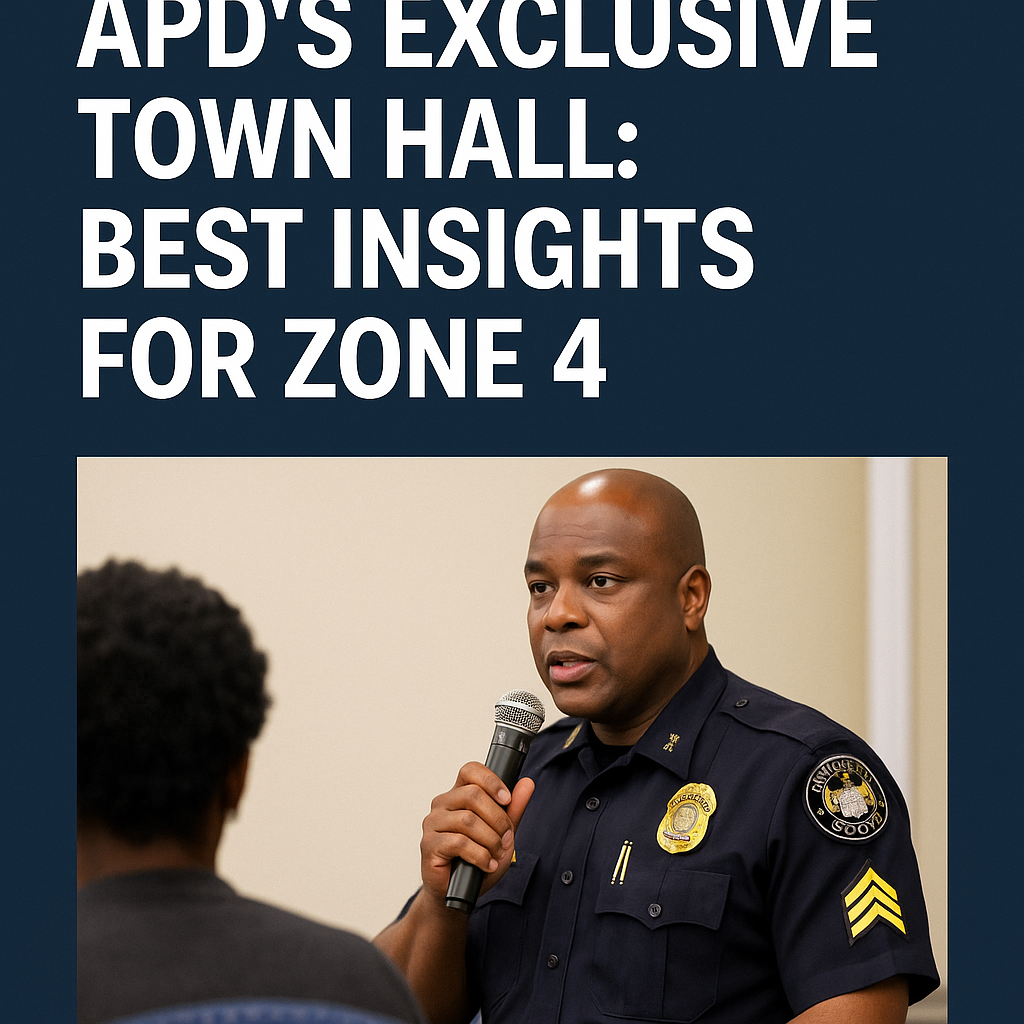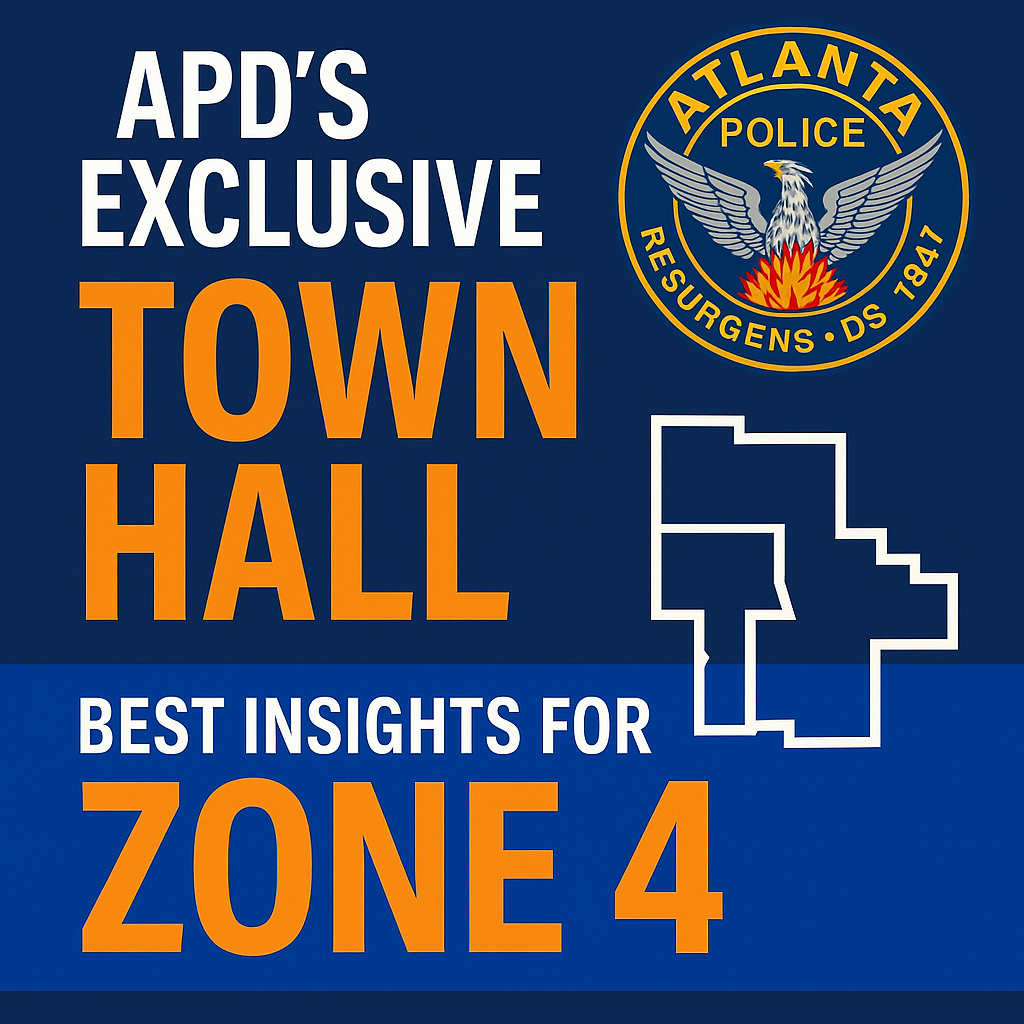APD’s Exclusive Town Hall: Best Insights for Zone 4
APD’s Exclusive Town Hall: Best Insights for Zone 4
The Atlanta Police Department (APD) recently held its first Town Hall meeting in Zone 4 since the onset of the coronavirus pandemic, offering residents a valuable platform for discussions about safety, community engagement, and local governance. This event marked a significant moment for both the department and the Zone 4 community, coming at a time when dialogues surrounding public safety have become increasingly urgent and diverse.
Community Connections Reinforced

At the heart of the Town Hall was a focus on reconnecting with residents in the aftermath of the pandemic. Many attendees expressed the need for transparency and increased communication between the police and the community. Participants raised important questions about crime rates, police presence, and community outreach initiatives. According to coverage from the Atlanta Daily World, APD representatives emphasized their efforts to rebuild trust with the community, acknowledging that past engagement had been lacking.
Notably, APD officials provided updates on crime statistics, which suggest a fluctuating landscape in terms of public safety. While there were some areas showing declines in reported incidents, concerns remained about specific types of crimes, particularly those affecting marginalized neighborhoods. This reflects broader discussions in various media outlets, as reported by The Atlanta Voice, regarding the complex nature of urban safety and policing strategies.
Diverse Insights and Perspectives
Participants at the Town Hall came from varied backgrounds, showcasing a mosaic of perspectives that enriched the dialogue. Some residents felt that increased patrols in high-crime areas were essential for fostering a sense of security. Others, however, voiced apprehension about potential over-policing and advocated for community-led safety initiatives.
One recurring theme was the call for more comprehensive community engagement programs. As expressed in several reports, residents highlighted the importance of programs that facilitate connections between youth and law enforcement. Many felt that these initiatives could be pivotal in preventing future crime and enhancing mutual understanding.
Moreover, local community leaders emphasized the role of equitable resource distribution in fostering a safer environment. They argued that investing in educational opportunities and job training for at-risk youth could ultimately lead to lower crime rates. This aligns with sentiments expressed in other news sources, indicating a growing recognition that addressing root causes is vital for long-term change.
The Path Forward: Collaborative Solutions
With the insights gathered from the Town Hall, several actionable strategies emerged that could guide APD and the community going forward:
– Enhanced Communication: Establishing regular forums for dialogue can help maintain momentum in community engagement, giving residents a consistent platform to voice their concerns and ideas.
– Community Partnerships: Collaborations with local nonprofits and civic organizations could promote educational and vocational training, aiming to uplift vulnerable populations and reduce crime.
– Transparent Data Sharing: Providing the community with real-time crime statistics and trends can empower residents to understand their environment better and encourage proactive measures.
– Youth-Focused Initiatives: Developing programs targeted at youth can help create positive relationships with law enforcement, fostering a sense of security and community ownership among younger residents.
While the Town Hall was a step in the right direction, the varying perspectives on policing strategies indicate that multiple facets of community safety must be addressed. The lack of consensus on some issues signals the need for continued dialogue to navigate complex challenges effectively.
Conclusion: A Call for Ongoing Engagement
The APD’s exclusive Town Hall in Zone 4 serves as a critical reminder of the importance of community involvement and communication in the realm of public safety. As the APD moves forward in its engagement efforts, the insights gathered from residents will be essential in shaping policies that are reflective of the community’s true needs.
As both the department and the community seek to balance safety and engagement, ongoing dialogues will undoubtedly play a pivotal role in building a safer, more inclusive environment. The commitment from both sides to work collaboratively will be the foundation for fostering long-term change, creating a community where all residents feel heard and safe.















